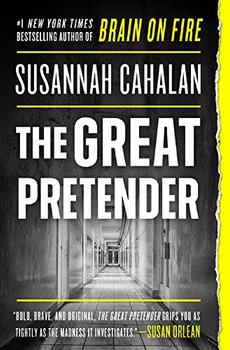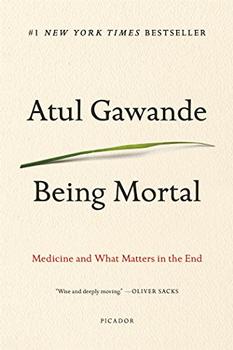Summary | Excerpt | Reviews | Beyond the book | Read-Alikes | Genres & Themes | Author Bio

The renowned Harvard Medical School physician and New Yorker writer Jerome Groopman presents an entirely new way of understanding medicine and medical care to give patients and their families insight into why some doctors succeed in thinking through problems and why some doctors fail.
On average, a physician will interrupt a patient describing her symptoms within eighteen seconds. In that short time, many doctors decide on the likely diagnosis and best treatment. Often, decisions made this way are correct, but at crucial moments they can also be wrong -- with catastrophic consequences. In this myth-shattering book, Jerome Groopman pinpoints the forces and thought processes behind the decisions doctors make. Groopman explores why doctors err and shows when and how they can -- with our help -- avoid snap judgments, embrace uncertainty, communicate effectively, and deploy other skills that can profoundly impact our health. This book is the first to describe in detail the warning signs of erroneous medical thinking and reveal how new technologies may actually hinder accurate diagnoses. How Doctors Think offers direct, intelligent questions patients can ask their doctors to help them get back on track.
Groopman draws on a wealth of research, extensive interviews with some of the country’s best doctors, and his own experiences as a doctor and as a patient. He has learned many of the lessons in this book the hard way, from his own mistakes and from errors his doctors made in treating his own debilitating medical problems.
How Doctors Think reveals a profound new view of twenty-first-century medical practice, giving doctors and patients the vital information they need to make better judgments together.
In a similar vein to Malcolm Gladwell's Blink, Groopman suggests that if doctors can become more aware of the thinking process that they go through to reach a diagnosis, and in particular to the role that their first impression plays in that process, they can become better diagnosticians. He suggests that patients recognize that "misguided care results from a cascade of cognitive errors", and thus they can help the diagnostic process by presenting their symptoms in such a way that the correct diagnosis can be made...continued
Full Review
(893 words)
This review is available to non-members for a limited time. For full access,
become a member today.
(Reviewed by BookBrowse Review Team).
Jerome Groopman, M.D.,
holds the Dina and Raphael
Recanati Chair of Medicine at
Harvard Medical School and is
chief of experimental medicine
at Beth Israel Deaconess Medical
Center in Boston. He has
published more than 150
scientific articles. He is also
a staff writer at The New Yorker
and has written editorials on
policy issues for the New
Republic, the Washington Post,
and the New York Times.
Full bio.
Interesting Link:
Dr Groopman has written many articles for The New Yorker, some of which are reprinted ...
This "beyond the book" feature is available to non-members for a limited time. Join today for full access.

If you liked How Doctors Think, try these:

by Susannah Cahalan
Published 2020
From "one of America's most courageous young journalists" (NPR) and the author of the blockbuster #1 New York Times bestselling memoir Brain on Fire comes a propulsive narrative history investigating the 50-year-old mystery behind a dramatic experiment that changed the course of modern medicine.

by Atul Gawande
Published 2017
In Being Mortal, bestselling author Atul Gawande tackles the hardest challenge of his profession: how medicine can not only improve life but also the process of its ending



He who opens a door, closes a prison
Click Here to find out who said this, as well as discovering other famous literary quotes!